
April 2
1902 Birth: Jan Tschichold: German typographer, book designer, teacher and writer. After the election of Hitler in Germany, all designers had to register with the Ministry of Culture, and all teaching posts were threatened for anyone who was sympathetic to communism. Armed Nazis arrested him and his wife in 1933, and Soviet posters were found in his flat, casting him under suspicion of collaboration with communists. All copies of Tschichold's books were seized by the Gestapo "for the protection of the German people." After six weeks a policeman somehow found him tickets for Switzerland, and he and his family managed to escape Nazi Germany.
1916 World War I: Gefreiter Adolf Hitler endures trench warfare in Flanders (Artois) with 3 Company, 16 Reserve Infantry Regiment [List Regiment]. [For further details, Click here.]
1917 World War I: Various: commences when the Canada Corps launches an artillery bombardment of the German trenches. It is considered a major event in Canadian history for the primary role the Canadian Corps played in the attack. They shelled the German trenches for a week, using over one million shells. The German artillery pieces were hidden behind the ridge, but by observing the sound and light from their firing, the Canadians were able to locate and destroy about 83% of the German guns. The Canadians also made many night trench raids during this week; although General Arthur Currie thought this was a stupid risk and a waste of men. The German troops called this period the "Week of Suffering." The attack was so loud, the sound of guns could be heard plainly in southern England, some one hundred miles from the front.
Wilson asks for Declaration of War:

On this day in 1917, President Woodrow Wilson asks Congress to send U.S. troops into battle against Germany in World War I. In his address to Congress that day, Wilson lamented it is a fearful thing to lead this great peaceful people into war. Four days later, Congress obliged and declared war on Germany. [For further details, Click here]
From Wilson's Address:
On the third of February last I officially laid before you the extraordinary announcement of the Imperial German Government that on and after the first day of February it was its purpose to put aside all restraints of law or of humanity and use its submarines to sink every vessel that sought to approach either the ports of Great Britain and Ireland or the western coasts of Europe or any of the ports controlled by the enemies of Germany within the Mediterranean. That had seemed to be the object of the German submarine warfare earlier in the war, but since April of last year the Imperial Government had somewhat restrained the commanders of its undersea craft in conformity with its promise then given to us that passenger boats should not be sunk and that due warning would be given to all other vessels which its submarines might seek to destroy when no resistance was offered or escape attempted, and care taken that their crews were given at least a fair chance to save their lives in their open boats. The precautions taken were meager and haphazard enough, as was proved in distressing instance after instance in the progress of the cruel and unmanly business, but a certain degree of restraint was observed. The new policy has swept every restriction aside. Vessels of every kind, whatever their flag, their character, their cargo, their destination, their errand, have been ruthlessly sent to the bottom: without warning and without thought of help or mercy for those on board, the vessels of friendly neutrals along with those of belligerents. Even hospital ships and ships carrying relief to the sorely bereaved and stricken people of Belgium, though the latter were provided with safe conduct through the proscribed areas by the German Government itself and were distinguished by unmistakable marks of identity, have been sunk with the same reckless lack of compassion or of principle. I was for a little while unable to believe that such things would in fact be done by any government that had hitherto subscribed to the humane practices of civilized nations. International law had its origin in the attempt to set up some law which would be respected and observed upon the seas, where no nation had right of dominion and where lay the free highways of the world . . . . This minimum of right the German Government has swept aside under the plea of retaliation and necessity and because it had no weapons which it could use at sea except these which it is impossible to employ as it is employing them without throwing to the winds all scruples of humanity.
Jeannette Rankin assumes office:
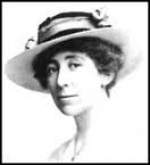
Jeannette Pickering Rankin, the first woman ever elected to Congress, takes her seat in the U.S. Capitol as a representative from Montana. Born on a ranch near Missoula, Montana Territory, in 1880, Rankin was a social worker in the states of Montana and Washington before joining the women's suffrage movement in 1910. Working with various suffrage groups, she campaigned for the women's vote on a national level and in 1914 was instrumental in the passage of suffrage legislation in Montana. Two years later, she successfully ran for Congress in Montana on a progressive Republican platform calling for total women's suffrage, legislation protecting children, and U.S. neutrality in the European war. Following her election as a representative, Rankin's entrance into Congress was delayed for a month as congressmen discussed whether a woman should be admitted into the House of Representatives.
Finally, on April 2, 1917, she was introduced in Congress as its first female member. The same day, President Woodrow Wilson addressed a joint session of Congress and urged a declaration of war against Germany. On April 4, the Senate voted for war by a wide majority, and on April 6 the vote went to the House. Citing public opinion in Montana and her own pacifist beliefs, Jeannette Rankin was one of only 50 representatives who voted against the American declaration of war. For the remainder of her first term in Congress, she sponsored legislation to aid women and children, and advocated the passage of a federal suffrage amendment.
In 1918, Rankin unsuccessfully ran for a Senate seat, and in 1919 she left Congress to become an important figure in a number of suffrage and pacifist organizations. In 1940, with the U.S. entrance into another world war imminent, she was again elected as a pacifist representative from Montana and, after assuming office, argued vehemently against President Franklin D. Roosevelt's war preparations. On December 7, 1941, the Japanese attacked Pearl Harbor, and the next day, at Roosevelt's urging, Congress passed a formal declaration of war against Japan. Representative Rankin cast the sole dissenting vote. This action created a furor and Rankin declined to seek re-election. After leaving office in 1943, Rankin continued to be an important spokesperson for pacifism and social reform. In 1967, she organized the Jeannette Rankin Brigade, an organization that staged a number of highly publicized protests against the Vietnam War. She died in 1973 at the age of 93. (History.com)
List Regiment: Gefreiter Adolf Hitler's 16 Reserve Infantry Regiment, 3 Company, fortify trenches near Arras. [For further details, Click here.]
1918 World War I: Opening of the Spring Offensive: Comment by Freiherr von Arz:
Among other things, the wound of our enemies in the West is so deep today that it can never heal again. I should be telling a lie if I said that the latest German successes surprised me; of these victories I was confident. The splendid leadership of the great masters of war, Hindenburg and Ludendorff, who have known their own aim, the depth, and thoroughness of the German mind, and the high moral earnestness of the German soldiers were sufficient guarantee for success to the onlooker acquainted with the circumstances.
The change from trench to active warfare makes the superiority of the German Army appear still more conspicuous. When the barbed-wire defences are left some miles behind, and the manoeuvres take place in the open field, then the alertness and experience of the non-commissioned officers, who have been trained by years of instruction during peace, and our thoroughly trained General Staff get their reward. Millions of fighters can be raised out of the soil, but it is not so easy to obtain even a fraction of the necessary leaders of all ranks. The facts we must keep before us when judging of the position on the western front. The German company and battalion commanders are a hundred times better than the English, and in that form an important guarantee of success.
The victorious and confident feelings of the German troops had not suffered any change by reason of the bad weather; the cold and rain which set in on March 27th. Against the wet and cold they were protected by the huge quantities of booty, consisting of coats, jackets and canvas, which they had found, while the rich lots of foodstuffs, which were found everywhere piled up in the British army depots, most advantageously supplemented their own rations. These unexpectedly large supplies have enabled many of the troops to live completely on what they find, so that their own supplies can be saved for a later period." (Count Czernin on Brest-Litovsk Treaty click here.)
Gefreiter Adolf Hitler's 16th RIR begins constructing fortified works in difficult defensive positions on an active front with German assault regiments near Fountaine (Montdidier). [For further details, Click here.]
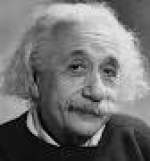
1921 Weimar: German physicist Albert Einstein arrives in New York to give a lecture at Columbia University on his new theory of relativity. It will open up a totally new way of thinking and will displace much of the scientific theory which has preceded it.
1926 Weimar: The Baden-Baden: a rotor ship invented by Anton Flettner leaves Hamburg, Germany, to make a transatlantic crossing. It arrived in New York on 29 May 1926 using a unique propulsion. Instead of sails, Flettner used two 9-ft diameter, 50-ft high cylinders, mounted vertically on the deck at the bow and the stern. Driven by 45-hp electric motors, they applying the aerodynamic power of the Magnus Effect which builds air pressure behind a rotating cylinder. Although a theoretical success, it was not sufficiently effective for commercial application.
1930 Ethiopia:Haile Selassie is proclaimed emperor. Note: He is the religious symbol for God incarnate among the Rastafari movement.
1935 Radar: Sir Robert Watson-Watt (Scottish physicist born April 13, 1892, Brechin, Scot‑-died Dec. 5, 1973, Inverness) is granted patent. He began as a meteorologist working on devices for locating thunderstorms. As head of the radio department of Britain's National Physical Laboratory (1935), he worked on aircraft radio location and could locate planes at a distance of about 80 mi (110 km) by beaming radio waves at them, receiving reflections of the waves, and calculating distance by elapsed time. This led to the design of the world's first practical radar system, a vital element in the defense of Britain against German air raids during World War II. His other contributions include a cathode-ray direction finder used to study atmospheric phenomena, research in electromagnetic radiation, and inventions used for flight safety.
1940 World War II: Norway: Hitler orders the invasion for April 9: He arrived at it over a period of six months during which the proposal was debated at length in the highest echelons of the German Armed Forces. Hitler's own attitude shifted during that time from lukewarm verging on indifference to determination. Since the war the decision has been both praised and condemned; here it is presented as an example of decision-making in a developing situation. Even though the occupation of Norway and Denmark had no significant effect on the outcome of the war, it established a milestone in the history of warfare by demonstrating the effective reach of modern military forces. Although lacking the resources to capitalize on it, the Germans had made a move of potential value to them in the development of a global strategy. It confronted the United States as well as Great Britain with a strategic threat. It brought Germany, theoretically at least, into a position to strike outward from the mainland of Europe. [See: What Were Adolf Hitler's Major Blunders?]
1941 World War II: Various:
Holocaust: Alfred Rosenberg meets with Hitler: "The Desert Fox" advances in Libya: German Lieutenant General Erwin Rommel, "the Desert Fox," resumes his advance into Cyrenaica, modern-day Libya, signaling the beginning of what nine days later will become the recapture of Libya by the Axis forces. [For further details, Click here]
1944 World War II: Romania: The Soviet Union announces that its troops have crossed the Prut River and entered Romania, one of Germany's allied countries.
1945 World War II: Various:
Churchill to Eisenhower: I am however all the more impressed with the importance of entering Berlin, which may well be open to us, by the reply from Moscow to you, which in paragraph 3 says, `Berlin has lost its former strategic importance.' This should be read in the light of what I mentioned of the political aspects. I deem it highly important that we should shake hands with the Russians as far to the east as possible.
Wunderwaffen: RAF bombers destroy Nordhausen city in two nighttime fire raids, killing 1,500 sick prisoners at Boelcke Kaserne. (Sellier, Verrier) [See: Wunderwaffen: Hitler's Deception and the History of Rocketry.] Holocaust: Hitler prophesies the world's eternal gratefulness for having instigated the stamping out of the Jews. (THP) 1947 Pacific Islands: The UN Security Council votes to appoint the US as trustee for former Japanese-held Pacific Islands.
1953 Death: Hugo Sperrle: (born February 7, 1885, Ludwigsburg, Germany‑-died April 2, 1953, near Landsberg am Lech, West Germany) field marshal of the Luftwaffe (German air force) during World War II.
Sperrle joined the German army in 1903 and flew combat aircraft in World War I. After holding various commands in the Reichswehr (postwar German armed forces), he was transferred in 1933 back to the air force, which he helped to expand in the years that followed. He became a brigadier general of the Luftwaffe about 1934. In 1936-37 Sperrle led the Condor Legion, i.e., the German air force unit that fought on the side of the Nationalists in the Spanish Civil War. There his forces were responsible for the bombing of Guernica and other Spanish towns.
Sperrle was promoted to the rank of general of fliers in 1937, and the following year he was made commander of one of the Luftwaffe's four air fleets, Air Fleet 3 (based in Munich). He led this fleet in the campaign against France (May-June 1940), and that July he was made a general field marshal of the Luftwaffe. Before operations began against Great Britain, Sperrle advised that Britain's Royal Air Force had to be destroyed to ensure successful bombing campaigns against that country. Air Fleet 3, stationed in northern France, played a major role in the Battle of Britain (June 1940–April 1941).
Sperrle went on to command all air forces in North Africa during General Erwin Rommel's operations with the Afrika Korps there. In 1944 Sperrle was appointed to command Germany's air forces in Western Europe in expectation of an Allied invasion of northern France. By the time of the D-Day landings (June 6, 1944), the Luftwaffe could muster only some 200 operational aircraft over the landing beaches to hold back an invading air armada of almost 10,000 planes of all types. Unable to counter such air superiority, Sperrle was dismissed from his post in August 1944. Sperrle was acquitted of all charges of war crimes by an Allied court in 1948.
1972 Various:
Charlie Chaplin
Born in Britain in 1889, Chaplin first became famous as the "Little Tramp" in Mack Sennett's Keystone comedy films. Over the course of his four decades in Hollywood, Chaplin was one of the motion-picture industry's most accomplished figures, writing, producing, directing and acting in such gems as The Gold Rush (1925), City Lights (1929), Modern Times (1936) and The Great Dictator (1940). With Douglas Fairbanks, Mary Pickford and D.W. Griffith, Chaplin founded United Artists, the first major movie production company to be controlled by filmmakers instead of businessmen.
Led by Senator Joseph McCarthy and the House Un-American Activities Committee, anti-Communist hysteria had Hollywood in its grip by the end of the 1940s. Chaplin earned special scrutiny on account of his tumultuous private life (married several times to extremely young women, he was also the target of a paternity suit in 1943, which he lost) and his public support of leftist political causes. In September 1952, Chaplin and his fourth wife, Oona (the daughter of the playwright Eugene O'Neill) were en route to London for that city's premiere of his latest film, Limelight, when they were informed by U.S. immigration services that Chaplin would be denied a re-entry visa upon his return. Bitter and angry, Chaplin vowed never to return to the United States. He moved with his family to Switzerland, and never made another American film.
Over the years, anti-Communist fervor died down in the United States, as did the animosity between Chaplin and the American government. In 1972, Chaplin planned a return visit to America to accept an honorary Academy Award. He traveled first to the British overseas territory of Bermuda, where he prepared on April 2 for his flight to the United States. The following day, according to a report in The New York Times, Chaplin arrived at New York's John F. Kennedy International Airport on Eastern Airlines Flight 810, at three p.m. in the afternoon. As his wife guided him by the elbow to a waiting limousine, Chaplin blew kisses to the nearly 100 people (most of them members of the press) who had gathered on the airfield; some 200 other spectators watched from behind glass in the Eastern Airport Terminal. [For further details, Click here]
Death: Franz Halder: Colonel-General and Chief of the General Staff of the German army (OKH) from September 1, 1938 until fired by Hitler on September 24, 1942. He was arrested by the Gestapo on July 21, 1944, and held in concentration camps until released by the Allies in 1945.
1979 Chemical weapons:
Anthrax poisoning kills 62 in Russia:
The world's first anthrax epidemic begins in Ekaterinburg, Russia [formerly Sverdlosk], on this day in 1979. By the time it ended six weeks later, 62 people were dead. Another 32 survived serious illness. Ekaterinburg . . . also suffered livestock losses from the epidemic.
As people in Ekaterinburg first began reporting their illnesses, the Soviet government announced that the cause was tainted meat that the victims had eaten. Since the town was known in intelligence circles for its biological-weapons plant, much of the rest of the world was immediately skeptical of the Soviet explanation.
It was not until 13 years later, in 1992, that the epidemic was finally explained: workers at the Ekaterinburg weapons plant failed to replace a crucial filter, causing a release of anthrax spores into the outside air.
2005 Pope John Paul II Dies:
On this day in 2005, John Paul II, history's most well-traveled pope and the first non-Italian to hold the position since the 16th century, dies at his home in the Vatican. Six days later, two million people packed Vatican City for his funeral, said to be the biggest funeral in history.
John Paul II was born Karol Jozef Wojtyla in Wadowice, Poland, 35 miles southwest of Krakow, in 1920. After high school, the future pope enrolled at Krakow's Jagiellonian University, where he studied philosophy and literature and performed in a theater group. During World War II, Nazis occupied Krakow and closed the university, forcing Wojtyla to seek work in a quarry and, later, a chemical factory. By 1941, his mother, father, and only brother had all died, leaving him the sole surviving member of his family.
Although Wojtyla had been involved in the church his whole life, it was not until 1942 that he began seminary training. When the war ended, he returned to school at Jagiellonian to study theology, becoming an ordained priest in 1946. He went on to complete two doctorates and became a professor of moral theology and social ethics. On July 4, 1958, at the age of 38, he was appointed auxiliary bishop of Krakow by Pope Pius XII. He later became the city s archbishop, where he spoke out for religious freedom while the church began the Second Vatican Council, which would revolutionize Catholicism. He was made a cardinal in 1967, taking on the challenges of living and working as a Catholic priest in communist Eastern Europe. Once asked if he feared retribution from communist leaders, he replied, "I m not afraid of them. They are afraid of me."
Wojtyla was quietly and slowly building a reputation as a powerful preacher and a man of both great intellect and charisma. Still, when Pope John Paul I died in 1978 after only a 34-day reign, few suspected Wojtyla would be chosen to replace him. But, after seven rounds of balloting, the Sacred College of Cardinals chose the 58-year-old, and he became the first-ever Slavic pope and the youngest to be chosen in 132 years.
A conservative pontiff, John Paul II s papacy was marked by his firm and unwavering opposition to communism and war, as well as abortion, contraception, capital punishment, and homosexual sex. He later came out against euthanasia, human cloning, and stem cell research. He traveled widely as pope, using the eight languages he spoke (Polish, Italian, French, German, English, Spanish, Portuguese, and Latin) and his well-known personal charm, to connect with the Catholic faithful, as well as many outside the fold.
On May 13, 1981, Pope John Paul II was shot in St. Peter s Square by a Turkish political extremist, Mehmet Ali Agca. After his release from the hospital, the pope famously visited his would-be assassin in prison, where he had begun serving a life sentence, and personally forgave him for his actions. The next year, another unsuccessful attempt was made on the pope s life, this time by a fanatical priest who opposed the reforms of Vatican II.
Although it was not confirmed by the Vatican until 2003, many believe Pope John Paul II began suffering from Parkinson s disease in the early 1990s. He began to develop slurred speech and had difficulty walking, though he continued to keep up a physically demanding travel schedule. In his final years, he was forced to delegate many of his official duties, but still found the strength to speak to the faithful from a window at the Vatican. In February 2005, the pope was hospitalized with complications from the flu. He died two months later.
Pope John Paul II is remembered for his successful efforts to end communism, as well as for building bridges with peoples of other faiths, and issuing the Catholic Church s first apology for its actions during World War II. He was succeeded by Joseph Cardinal Ratzinger, who became Pope Benedict XVI. Benedict XVI began the process to beatify John Paul II in May 2005. (History.com)
2006 Death: Nina Schenk von Stauffenberg: widow of freedom fighter Claus Schenk von Stauffenberg.
Edited by Levi Bookin (Copy editor) Click to join 3rdReichStudies Disclaimer: This site includes diverse and controversial materials--such as excerpts from the writings of racists and anti-Semites--so that its readers can learn the nature and extent of hate and anti-Semitic discourse. It is our sincere belief that only the informed citizen can prevail over the ignorance of Racialist "thought." Far from approving these writings, this site condemns racism in all of its forms and manifestations. 
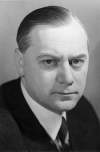
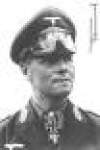

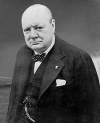

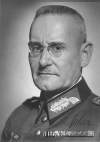
levi.bookin@gmail.com










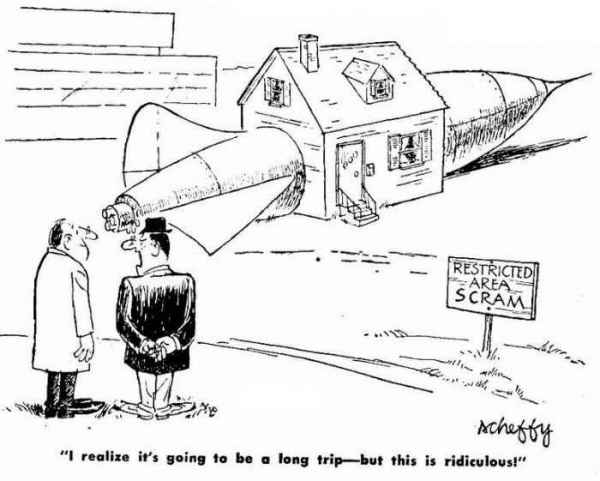
Fair Use Notice: This site may contain copyrighted material the use of which has not always been specifically authorized by the copyright owner. We are making such material available in our efforts to advance understanding of historical, political, human rights, economic, democracy, scientific, environmental, and social justice issues, etc. We believe this constitutes a "fair use" of any such copyrighted material as provided for in section 107 of the US Copyright Law. In accordance with Title 17 U.S.C. Section 107, the material on this site is distributed without profit to those who have expressed a prior interest in receiving the included information for research and educational purposes. If you wish to use copyrighted material from this site for purposes of your own that go beyond 'fair use', you must obtain permission from the copyright owner.
Please Note: The list-owner and the moderator of 3rdReichStudies are not responsible for, and do not necessarily approve of, the random ads placed on our pages by our web server. They are the unfortunate price one pays for a 'free' website.



